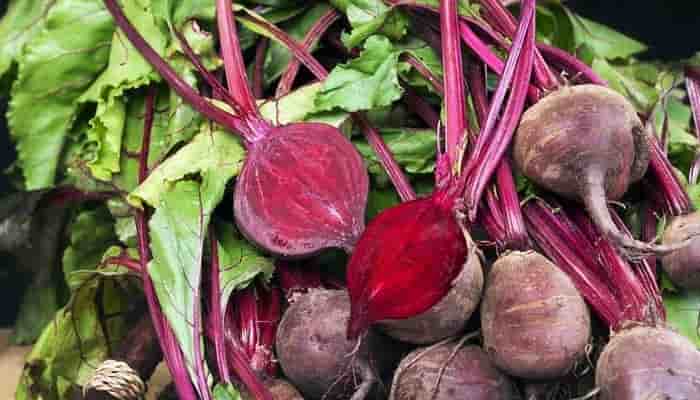Зміст
Beet syrup is a homemade and natural way to combat unpleasant cough and hoarseness. Effectively clears the airways and facilitates expectoration of retained secretions. It can be used in children from one year of age.
Beetroot syrup is a source of anti-inflammatory substances that are valuable for the body. Used as an aid in the treatment of cough. It contains only natural ingredients, so it can be used by young children and pregnant women.
What does beet syrup contain?
Beets have a high content of healthy ingredients. These include antioxidant substances, also known as antioxidants, which include, but are not limited to: anthocyanins. They have anti-inflammatory properties, strengthen the body’s overall immunity and slow down the aging process.
Beets also contain betaine, a unique nutrient that effectively fights inflammation and has a bacteriostatic effect. Beetroot syrup is a source of many vitamins and minerals necessary for the proper functioning of the body, especially vitamin C, folic acid, magnesium, calcium, iron, and potassium.
Read also: Onion syrup: a natural antibiotic.
Properties of beetroot cough syrup
Beetroot syrup is a natural mixture that can be used both for medicinal purposes in case of infection and for preventive purposes. It helps strengthen the immune system, prevents the development of viral and bacterial infections, cleanses the upper and lower respiratory tract, making breathing easier. Effective for all types of cough – dry and wet. It has expectorant properties, which helps remove remaining secretions in the respiratory tract. Beetroot syrup relieves hoarseness and fights sore throat.
Red beet syrup: recipe
Preparing beetroot cough syrup is very simple and does not require much time. The healing mixture is prepared from one large beet, which should be grated. Place the grated vegetable in a bowl and then add two teaspoons of sugar or honey to it. Mix everything thoroughly and heat for about 20 minutes over low heat.
It is important not to allow the mixture to boil – then the syrup will lose its healing properties. In the fight against infections, honeys such as linden, honeydew, or buckwheat are especially recommended. They contain a large amount of inhibit, a substance that has a bacteriostatic effect, i.e., it inhibits the growth of bacteria.
Beetroot syrup can be prepared without heating. The beets should be washed, peeled and cut into small pieces. Then the vegetable is crushed (using a blender or by squeezing beet pieces through a juicer) and filtered. The resulting syrup should be sweetened with honey or sugar.
Homemade beetroot cough syrup can also be prepared by hollowing out a circle at the very top of the vegetable with a diameter of about 2 cm and a depth of about 3-4 cm, being careful not to pierce the beets all the way through. Pour a teaspoon of honey into the hole. The beets are left in a warm place for several hours until the juice is released. The prepared mixture should be poured into bottles or jars and stored in the refrigerator.
Read also: Garlic syrup: how does it affect the body?
Sugar beet syrup: recipe
The preparation of beet syrup begins with spotless the vegetable, which is then peeled, and the green parts are cut off. The beets should be cut into small cubes, placed in a saucepan and filled with water to such a level that it covers the vegetable. The whole thing should be simmered on the smallest burner and low heat for several hours until it turns brown. After cooling, the beet syrup is bottled. It can be used for medicinal purposes and as a sugar substitute.
Beetroot syrup dosage
Beetroot syrup is recommended for people with persistent cough, hoarseness, and colds. It should be taken at least twice a day, one teaspoon, i.e., about 5 milliliters. For a very strong, tiresome cough, it is advisable to drink one teaspoon of syrup every hour. It is also used prophylactically to increase the body’s immunity – then it is recommended to drink it up to four times a day.
Beetroot syrup contains only natural ingredients, making it very safe to use. It can be given to children after the first year of life. If you are allergic to honey, you should sweeten it with sugar when making syrup at home.
Homemade beet syrup can also be safely used by pregnant women. Apart from its anti-inflammatory, cough-soothing and anti-infective properties, beets also contain iron and folic acid, which are very important ingredients for pregnant women – they protect against anemia and ensure the proper development of the child.








